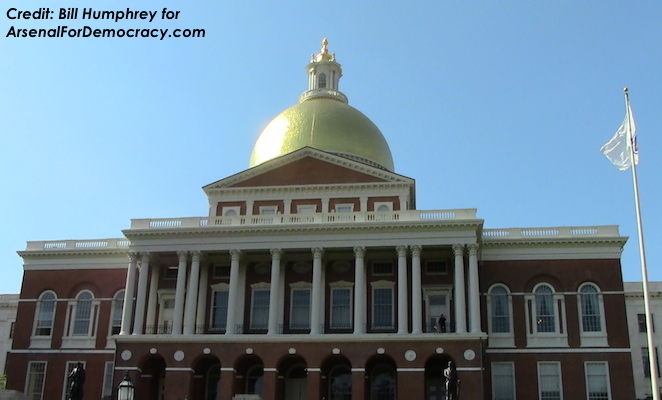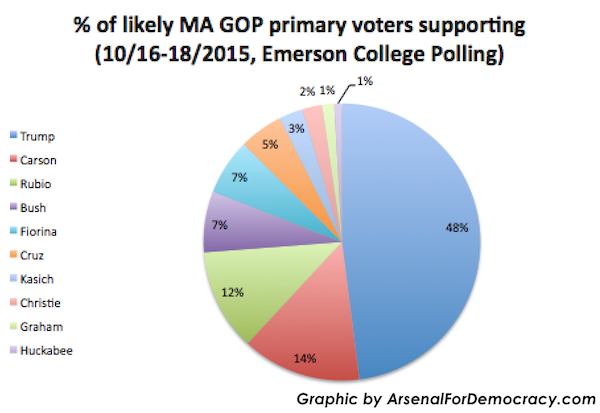Below I’ll present passages explaining briefly what ranked choice voting is and then present historical evidence as to why the system might be particularly (perhaps uniquely) suited to the constitutional role of a statewide executive. The latter case I have drawn from the constitutional debates that shaped the late 18th century creation of a governorship model that spread from Massachusetts to the eventual 50 states (as well as influencing the original U.S. setup).

The New America Foundation and FairVote, June 2008, on what instant runoff ranked choice voting is, procedurally:
Instant runoff voting (IRV) is an election method that determines the choice of a majority of voters in a single round of voting without the need to conduct a separate runoff election. As a majority voting method, IRV is ideal for single-winner offices such as governor […] In recent years, IRV has been implemented for local elections in several American cities, including San Francisco (CA), Cary (NC), Hendersonville (NC), Takoma Park (MD), and Burlington (VT).
An explanation of mechanics and outcomes, also from FairVote:
Ranked choice voting (RCV) describes voting systems that allow voters to rank candidates in order of preference, and then uses those rankings to elect candidates able to combine strong first choice support with the ability to earn second and third choice support. RCV is an “instant runoff” when electing one candidate…
– Gives voters the option to rank as many or as few candidates as they wish without fear that ranking less favored candidates will harm the chances of their most preferred candidate.
– Empowers voters with more meaningful choice.
– Minimizes strategic voting.
[…]
In a single seat ranked choice voting election, sometimes called instant runoff voting, votes are first distributed by first choices. If no candidate has more than half of those votes, then the candidate with the fewest first choices is eliminated. The voters who selected the defeated candidate as a first choice will then have their votes added to the totals of their next choice. This process continues until a candidate has more than half of the active votes or only two candidates remain. The candidate with a majority among the active candidates is declared the winner.
Now let’s turn to a 1780 theory on the role of a statewide executive office from the constitutional debates of the State of Massachusetts, described and quoted by Eric Nelson in his 2014 book The Royalist Revolution: Monarchy and the American Founding (pp. 176-177):
(pp. 176-177):
But the most extraordinary response to the proposed constitution came from the town of Wells, far to the north of Massachusetts (in present-day Maine). Like the Groton committee, the drafters of the Wells report began by proposing that “the Governor might have a [full] Negative on all Acts of the Legislature.” “We think it very necessary,” they explained, “that the Independence of the Executive and Judicial Departments be well secured – Nor can We conceive of how this can be done effectually unless there be a Power lodged somewhere of negativing such legislative Acts as tend to destroy or violate this Independency–And We are clearly of the opinion that the Governor will be the most fit person to be intrusted with this Power; he being the first Magistrate and the Sole Representative of the whole Commonwealth.” But the authors then added an excursus that was entirely their own. The governor, they insisted, will constitute “the Center of the Union to all the several parts and members of the political Body; who is chosen and constituted by the whole Community to be in a peculiar manner the Guardian of the Constitution and of the Rights and Interests of the whole State–All the Individuals have a like Interest in him and stand in a like Relation to him as their common Representative.” […] “when we consider that the several Members of the Legislative Body are to be chosen only by particular Districts as their special Representatives and many not improbably be often chosen for the very purpose of serving and promoting such Views and Designs of their Constituents as would be injurious to other parts of the State,” the dangers of assembly government become perfectly clear. It follows that “we cannot but think that the Representatives of the Whole People who can have no reason to act under the Influence of such partial Biases and Respects should be furnished with ample and Sufficient Powers to prevent effectively the pernicious Consequences of such narrow Policy, as is calculated to serve the Interest of one part to the injury of another who may happen not to have an equal Interest in the Legislature.”
The authors went on to explain that their heightened sensitivity to the dangers of legislative power, and the corresponding need to invest the chief magistrate with sweeping prerogatives, arose chiefly out of their experience of life on the periphery of a political community. “The distant parts” of the commonwealth, such as Wells, “may Scarce have a single Member to Speak and act on their Behalf” in the legislature, and, accordingly, the two chambers “may be prevailed upon to pass Bills injurious, oppressive and pernicious to a great part of the people.” […] But however estranged they might be from the metropolitan legislature, “we shall always have a Representative in the Person of our Governor, we may claim an equal Interest in him with the other parts of the State.”
In other words, rather than electing a statewide executive (whether the governor or further down the ballot) who effectively represents only the plurality of voters who voted for him or her — often mirroring the geographical distribution of the population itself as the legislature already does — an executive would be elected by the whole people in this system.
Each voter would have cast a vote for that governor, in effect, by ranking a list of candidates. The governor would likely be the first or second choice of a much broader range of people than under the current system. He or she would be accountable to and representing the whole of the state, not just the populous parts.





